People around the world find themselves in the midst of one great, shared experience. Social distancing and large-scale quarantine measures have become the norm. Colleges and schools stand empty, workplace conversations take place on laptops around kitchen tables or, in many industries, not at all.
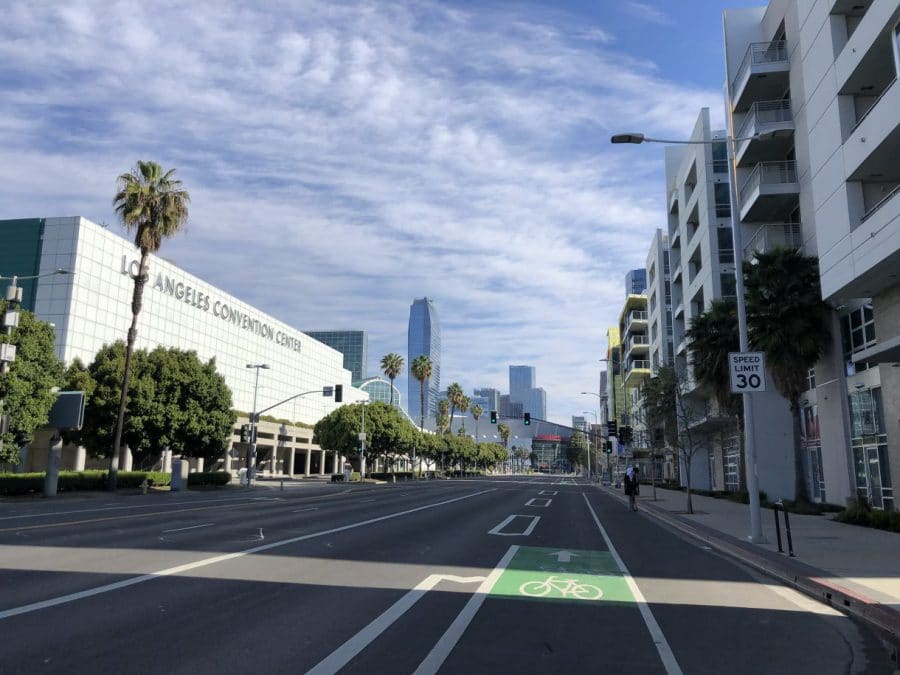
The Hownikan spoke with several Citizen Potawatomi whose lives, work and studies have been directly impacted since governments across the U.S. took measures to slow COVID-19’s spread. Their responses have been slightly edited for clarity.
Cheri Adams – Los Angeles, California
Descendant of Flora Ziegler
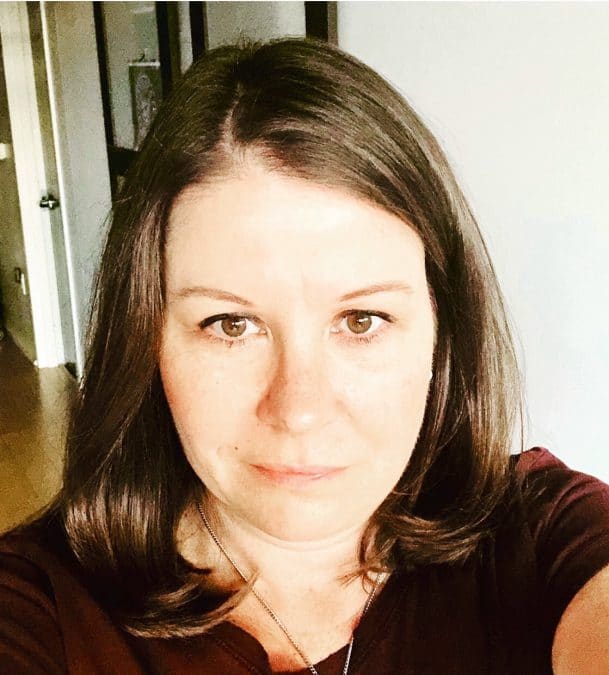
I work in film and television as both a SAG-AFTRA background actor and on the production side on many shows such as 9-1-1, GLOW and SWAT. For me, all of the productions I was working on stopped on March 12, 2020. I have not worked since, and no one knows when work will come back. I am now self-quarantining at home unemployed with no income.
I’m trying to apply for unemployment, but I’m having issues with our system being that millions of people in California are all trying at the same time. Our governor announced on April 10 that all nonessential workers will be staying home self-quarantining until at least May 15. Most productions shut down completely on March 13, 2020, due to COVID-19, so it’s been almost a month of no work for me. I’m hoping to work ASAP, but it is looking like nothing until this summer. That is me just guessing.
The entire County of Los Angeles, as well as most other counties here in California, are requiring everyone to wear a mask or face covering when leaving your home. They are asking people to not go out at all unless they need to get groceries (not counting essential workers like medical, grocery workers and other essential workers). People are listening, and our streets and freeways are quiet. I’m staying home and watching way too much TV.
Sam James – Fort Worth, Texas
Descendent of the Higbee family
I am a registered nurse and work in a pediatric orthopedic clinic in Fort Worth, Texas. My wife is also a registered nurse, and she works in a director role for a local school district.
This COVID-19 outbreak has dramatically changed our world. Our two children have been out of school since mid-March and are doing distance learning. I am truly blessed; since my wife works for a school district, she is working from home, so she has been working with the kids daily to help continue their education from home.
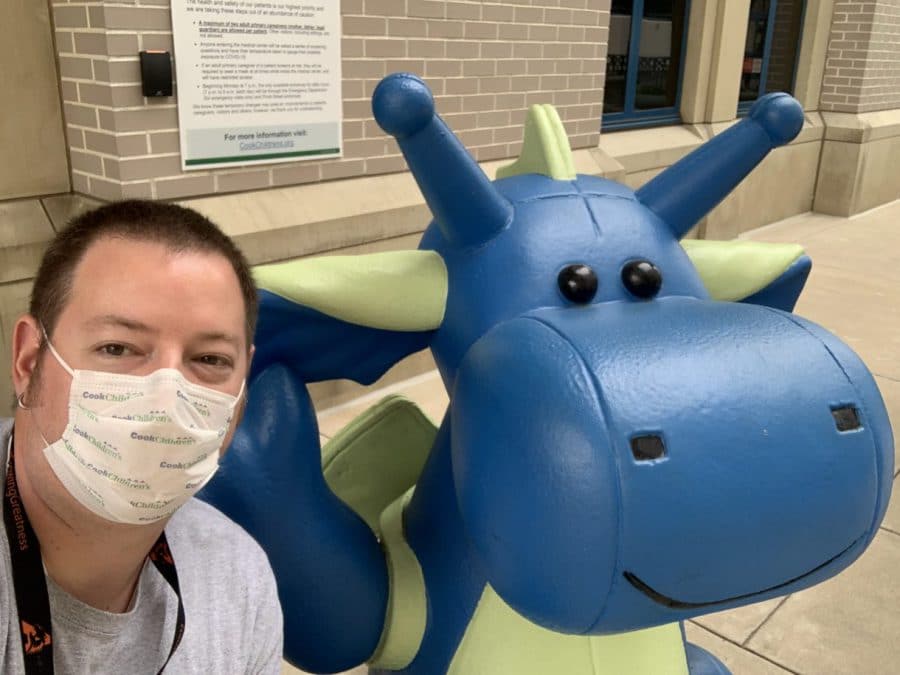
I am still going to work. The system I work for is redeploying us to help cover positions in the hospital system associated with the clinic. My current new normal is working half of what I normally work. The other half of the time, I am on a redeployment list and can be called to work anywhere within the medical system that we are a part of. So far, I have only been called up to staff an entry for employees. While on duty at that entrance, I was responsible for checking any staff member who entered the medical center.
We have adapted to the ever-changing situation, and will continue to do what we have to in order to keep our children safe and provided stability in these unstable times. On top of my changing work schedule and locations, I also do all the grocery shopping or any other essential errands that need to be taken care of. This is to try and prevent unnecessary exposure to my wife and kids. I am at a low risk for exposure, so I take precautions. I get undressed in my garage and put my clothes directly into the washing machine, and I leave my shoes outside. I then go directly to the bathroom and take a shower. Once showered, I then interact with my family as normal.
For now, things are quiet in Fort Worth. Most people have cut down on their out-of-the-house activities. I think the hope here is that we can return to normal soon. Several small businesses have already closed their doors permanently. It has been sad seeing local shops close from all of this. I just pray for healing for all those effected by this virus and healing for our nation.
Anna Bazhaw-Hyscher – Tulsa, Oklahoma
Descendant of the Bergeron family
I’m a student at both Oklahoma State University in Stillwater and Tulsa Community College in Tulsa. Until the quarantining began, I commuted to both throughout the week. TCC extended spring break by a week before moving online, while OSU did so immediately afterward. Since I worked for Tulsa Public Schools as a substitute, that also means that I have no job at the moment.
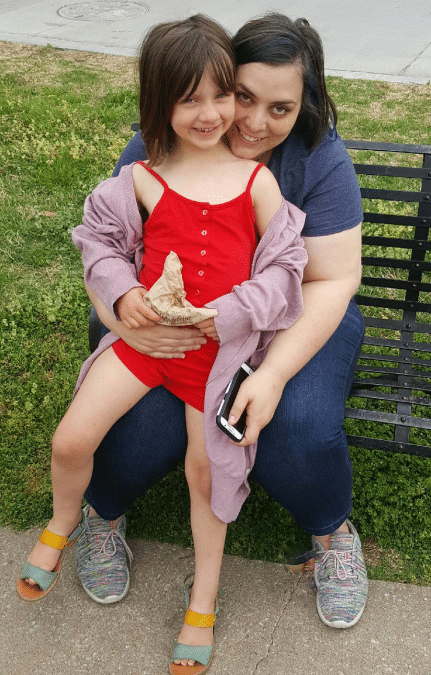
The lack of a commute (and the money saved on it) has been really nice, but I miss the structure of the day. It’s been an adjustment. I have children at home and no suitable workspace (I occupy the sofa pretty much all the time). And, I am having some difficulty with internet speed/connectivity. To compensate, I work online at night when traffic is less. The house is obviously not going to get bigger, so I have to make do with the space that’s available. We have moved the kitchen table to one side, and the kids and I sit there to do their homework. We have moved a desk in for my husband to work from home on the other side. He starts at 8 a.m., the kids at about noon, and then it’s my turn. It does overlap a little, but they’re old enough to keep quiet while he’s on calls. Schedules are hard to keep right now. We eat when we’re hungry, not at usual meal times, and bedtime has all but disappeared, which I’m feeling the need to adjust, just for some quiet.
Interior design is a very hands-on field of study, almost impossible to do entirely online. The professors have not all adjusted as well as one might hope, but many have. I worry a little about math – I took that as a lecture on purpose, but am relying heavily on Khan Academy and similar resources.
Most of the professor aren’t adhering to formal class times, and have asked us for feedback on what works for us. In one case, this means no actual class at all, just individual Skype sessions with the instructor for presentations. In another, it’s Zoom meetings, but once a week instead of twice, with more individualized learning time.
Tulsa is pretty quiet compared to how it was. We went for a drive just to get out, at what used to be rush hour, and it bore no resemblance to a month ago. All the parks are open, but the playgrounds and sports courts are closed. More people take walks around the neighborhood than before, although there were always a lot of them. It’s probably hardest for the kids, who can’t see their friends except over the computer, which is not their normal way of interacting.
All the businesses are empty, which feels strange, and a lot of people are wearing some kind of mask by now. Oh, and I locked my keys in my car three weeks ago. They’re still in there, but it’s not exactly urgent. Tulsa has an amazing mayor, and he’s been on top of the situation from the beginning. Most people are practicing social distancing and being respectful of one another. It could change, but I don’t anticipate that a full lockdown will be required the way it has in other places. Also, Tulsa is offering interest-free loans to small business and utility lenience so no one will lose access to water.
We’ve always had one rule in this house – “Don’t get on mama’s nerves.” The new rule No. 2 is “No co-pays.”
We obviously want to avoid urgent care and hospitals as much as possible, and have mostly switched to the drive-thru pharmacy and grocery pickup. There’s more food on the shelves again, but things like toilet paper and hand sanitizer are still scarce. Rubbing alcohol costs four times what it did.
Ashley Poutre – Sacramento, California
Descendent of Theodore A. Pearce
I am the front desk supervisor of a nonprofit international youth hostel in downtown Sacramento. This is typically the beginning of our busiest season with international and domestic travelers; however, the first three weeks of March consisted only of cancellations and fear of the impending pandemic.
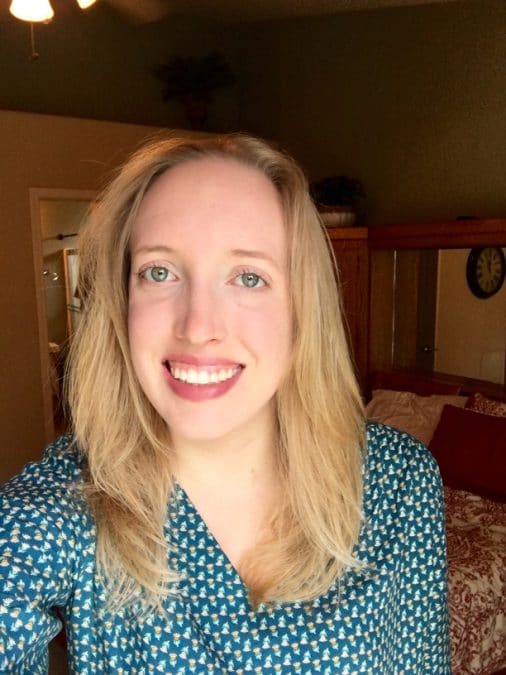
On March 21, we temporarily closed due to concerns regarding COVID-19, and while we initially planned to re-open May 1, it had become clear that this is most likely not the case. As a result of the closure, my entire team was laid off, including my partner of four years. As part of the management team, my hours were reduced from 40 to 16 hours per week in order to maintain the property. The rest of my team has had to apply for unemployment. Our health care benefits are being paid through the month of April, but we were fearful that these benefits may be terminated if the closure lasted longer.
Around the second week of April, I received news that my general manager and I would have our hours reduced even further, and I am now working about five to 10 hours every two weeks. Thankfully, I have started receiving consistent unemployment benefits from the state, which have alleviated most of my financial concerns. Our expected opening day is now June 1, and the organization I work for will continue to cover health care benefits through the closure.
My biggest concerns now are how staffing and hours may be affected once we open. It is likely that my hours won’t return to full-time status any time soon, and I’m concerned what my finances will be like once the supplemental assistance from the CARES Act ends. Even if the local economy “opens,” it does not mean that we will immediately begin receiving guests, especially international travelers, since everyone will still be on edge or focusing on other priorities before travel. I am expecting this to have a huge ripple effect on the travel and tourism industry for the next two years. My plan is to save as much as I can so that I can cover my expenses in the event that the timing of all these factors do not match up. Other than that, I am trying to focus on staying positive, keeping myself physically active as well as creative. In fact, I have taken up beading after purchasing a kit from the CPN online shop, which has been soothing and a great way to pass the time.
Virginia Vogel – Lakeville, Minnesota
Descendent of the Godfrey family
I am the American Indian School Success Liaison in Lakeville Area Schools in Minnesota.
I started at this job two weeks before the outbreak, and I was unbelievably excited about getting into the work when we got the order that schools were closing and to shelter at home.
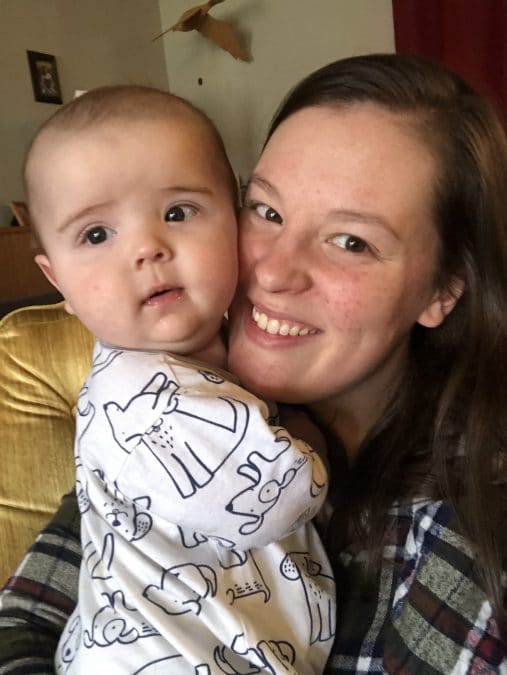
As the new school success liaison in Lakeville, I am part of a great team who cares deeply about the students and schools. My job includes connecting with the American Indian students and families in the district. I love having the opportunity to use my cultural knowledge to connect with families and work with staff.
Two weeks into my new job I found myself stuck at home video conferencing once a day with the team and trying to learn about my new job on the fly. I didn’t get a chance to start meeting with students, let alone talk to their parents when this all started. Many of the families I have “met” have been over the phone. Everything was crisis “go-mode” from my second week on, and it was really stressful. We’re all just starting to figure out what our new role will be, and on top of it I am working to get to know the job. It isn’t easy to get to know people over the phone.
I’m grateful to have such an amazing job at this time and I don’t take that for granted. However, people need people; and in helping professions, we feel that loss of connection so, so deeply. I am eager to get back into the schools to meet my families, and work with my students. I am sad that we are not able to go back until next year.
I am a new mama, and it took a lot of time and energy helping my son get into the new routine. My husband and I had just finished up our parental leaves, and our son had been at daycare for two weeks when we both found out that we were going to be staying home. It has been a huge balancing act trying to figure out how to take care of him while also doing our work. It has taken a lot of flexibility and a lot of grace to work things out.
Because of this I can easily relate when I hear that many families in the district are still struggling with distance learning and all of the problems that go along with it such as lack of internet, lack of devices, trying to figure out what work needs to get done and when. The district has been tireless in the efforts to reach as many families as possible. A lot of the families, thankfully, still have their jobs, but that poses the same struggle of trying to do work while balancing school. We are doing the best we can to connect with as many families as possible, but on the other hand, many do not want to admit that they are struggling or need help. As the new person on the team, I am trying to figure out how to best connect with families who don’t know me well while also learning what resources are available.
So overall, it is still a struggle. I think people are going to be continually and increasingly upset and agitated, feeling unsure, and unsettled. I think a lot of our (my) job going forward is trying to be as positive and uplifting as we can.
Emily Higdon – Oklahoma City, Oklahoma
Descendent of the Bayless family
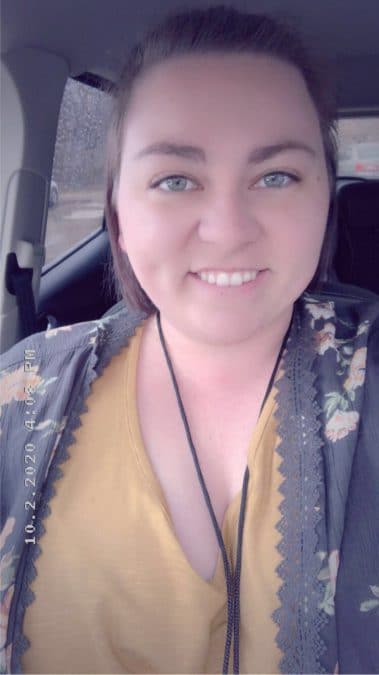
I live on the border of Cleveland County and Oklahoma County in Oklahoma City. I worked with CPN at the Child Development Center for five years before transitioning to public school. I now work at a middle school in the Oklahoma City Public School system. I teach fifth grade English. This was my first year of public-school teaching.
I graduated from St. Gregory’s prematurely, so I have had to go the emergency certification route to get my teacher certification. You could say that it has been quite an adventure to even get to my first year of teaching. Now, that year has been cut short due to this tragic pandemic. I miss my kids so much, but I’m okay. I still have a way to pay bills and keep food in the house.
My students, however, are my greatest concern. I am worried for their safety and well-being. Some of them are growing up in a situation that is not secure or safe. Most parents that I have spoken to have told me that they’re doing okay so far. Quite a few are fearful at what the next several weeks will look like for their jobs. I hope that they will be able to ride this out safely. The biggest effect on me is not getting to see my students and coworkers every day. I miss them. The world is a big and scary place and for some, school was their only safe haven. I hope they are all okay.
It’s been hard to adjust to virtual teaching, but my district has been amazing with supporting us with plenty of resources. I’ve been able to video chat with a few of my students which has been a great way to feel the least bit normal. I think the hardest week was last week, because I didn’t get to celebrate my birthday with my friends and family the way I wanted to. I always have a big dinner with them, but this year we obviously couldn’t. Living alone in this time is difficult. I really have to fight to stay motivated and try to keep a routine. And it’s hard planning for the future school year and the future in general when you have no idea what the world will look like even in two weeks. I know that’s always technically true, but this really puts that into perspective.
Jennifer Montgomery-Nichols – Shawnee, Oklahoma
Tribal Employee
I work at the FireLake Entertainment Center Bistro. On March 12, we shut down our buffet though we continued to operate until the casino shut down on March 19. I then volunteered to work at FireLake Discount Foods in Shawnee as a sacker.
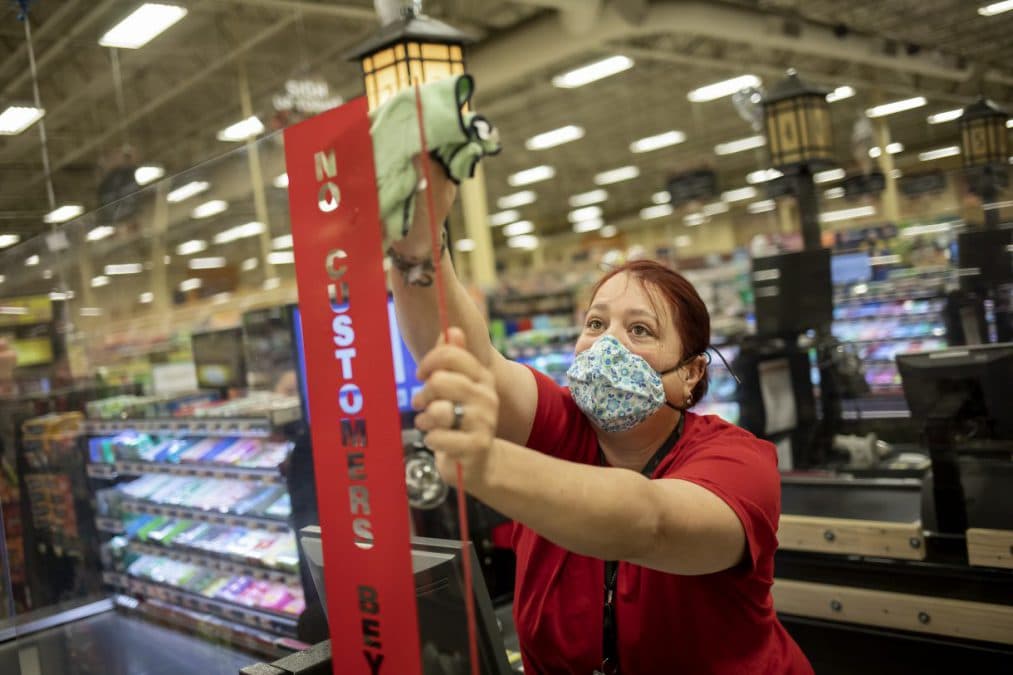
Being able to work still is amazing, and I have never been more appreciative of the people who work at the grocery store. Seeing what they deal with and go through has been a real eye-opener. I miss my job and my coworkers. It just goes to prove you never know what you truly have until you’re forced to miss it.
